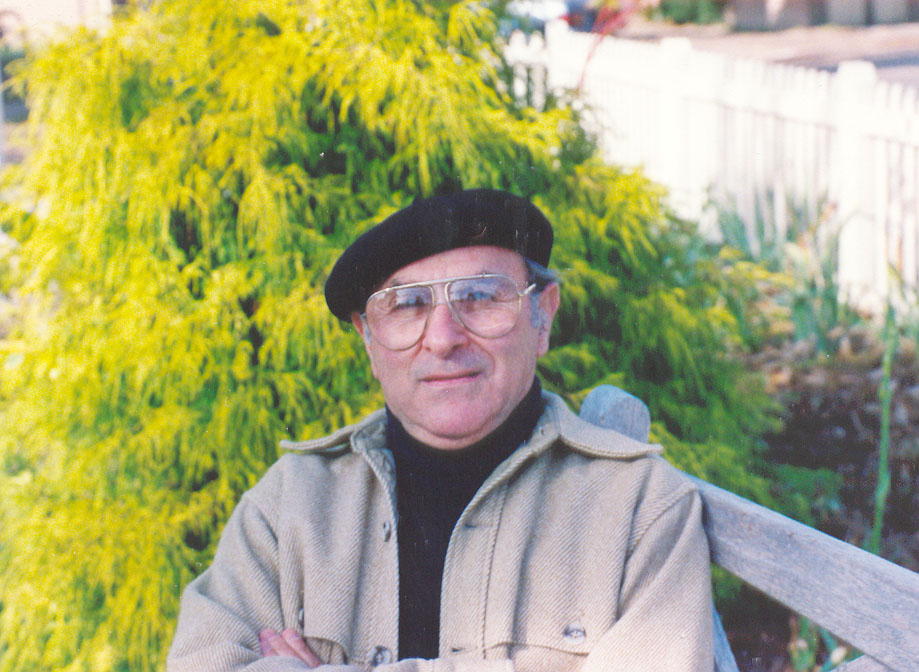
 Dr. Edward Lozansky, the founder and president of the American University in Moscow, a nuclear physicist who during the many years of Communist rule in the Soviet Union, lived as an exile in the U.S, and has become an American citizen. According to Lozansky, "WWIII between U.S., NATO, Russia and China has already began on political, economic and informational fronts. So, far, it had not included direct military confrontation but the increasing numbers of U.S. and NATO air, sea and ground presence in the vicinity of Russia and China borders raises the risk that such confrontation may occur.”
Dr. Edward Lozansky, the founder and president of the American University in Moscow, a nuclear physicist who during the many years of Communist rule in the Soviet Union, lived as an exile in the U.S, and has become an American citizen. According to Lozansky, "WWIII between U.S., NATO, Russia and China has already began on political, economic and informational fronts. So, far, it had not included direct military confrontation but the increasing numbers of U.S. and NATO air, sea and ground presence in the vicinity of Russia and China borders raises the risk that such confrontation may occur.”
Dr. Edward Lozansky, the founder and president of the American University in Moscow, a nuclear physicist who during the many years of Communist rule in the Soviet Union, lived as an exile in the U.S, and has become an American citizen. According to Lozansky, "WWIII between U.S., NATO, Russia and China has already began on political, economic and informational fronts. So, far, it had not included direct military confrontation but the increasing numbers of U.S. and NATO air, sea and ground presence in the vicinity of Russia and China borders raises the risk that such confrontation may occur.”
Former Sen. Sam Nunn of Georgia, who served as the powerful chairman of the Senate Armed Services Committee, after retiring from Congress, co-founded the Nuclear Threat Initiative, an organization working to prevent catastrophic attacks using nuclear, biological, and chemical weapons. Nunn said, "sleepwalking into nuclear catastrophe is rapidly growing.”
In Lozansky’s view, in the absence of any serious dialogue on government level between the United States and Russia, what is needed is people diplomacy that would be based on the ideas that Trump, Biden, Putin, Xi and leaders from 200 countries around the world, have already agreed on.
Namely, how to save the planet from climate change.
Lozansky, quoting world renowned scientists, said, "It was calculated that the Earth has an additional 2.2 billion acres of land suitable for reforestation. That provides enough room to plant an extra 1.2 trillion trees that would contribute to carbon sequestration. More than half of the globe’s reforestation potential is found in six countries: Russia (373 million acres), the United States (255 million), Canada (194 million) Australia (143 million), Brazil (123 million) and China (99.3 million).”
Significantly, last October, following up on his pledge made during the 2020 World Economic Forum in Davos, Switzerland, Trump signed an executive order establishing the "One Trillion Trees Interagency Council” at the Department of Interior, to coordinate the federal government’s support of this initiative.
President Biden is quoted saying: "In my view, we have already waited too long to deal with this climate crisis, and we can’t wait any longer.”
Lozansky noted Russian Foreign Minister Sergey Lavrov and U.S. climate envoy John Kerry in a recent call discussed climate change and the implementation of the Paris climate agreement. They also agreed to cooperate within the Artic Council, given the significance of climate issues in the Artic.
Many American and Russian peace activists are proposing to launch a tree planting effort on Sunday. This is the symbolic date for the United States and Russia, allies during World War II, when the militaries of both countries met in 1945 on the Elbe River in the German city of Torgau to finish off the brutal Nazi regime and end WWII.
Antonio Guterres, U.N. Secretary-General at the One Planet Summit, said: "2021 must be the year to reconcile humanity with nature. Until now, we have been destroying our planet. We have been abusing it as if we had a spare one. We have been poisoning air, land and water- and filling oceans with plastics. Now, nature is striking back. Biodiversity is collapsing. Deserts are spreading. Fires, floods and hurricanes are more frequent and extreme. Preserving the world’s biodiversity also yield jobs: according to the World Economic Forum, emerging business opportunities could create 191 million jobs by 2030.”
Lozansky may be right. U.S.-Russia-China cooperation to save the planet is the way to avoid a nuclear holocaust.
Shatz is a Williamsburg resident. He is the author of "Reports from a Distant Place,” the compilation of his selected columns. The book is available at the Bruton Parish Shop and Amazon.com



_jpg/250px-ElbeDay1945_(NARA_ww2-121).jpg)





